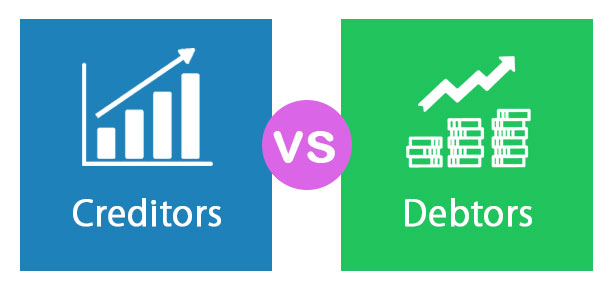User Intent
Users searching for the difference between debtors and creditors are likely looking for clear definitions, practical applications, and a comparative analysis. This article provides a detailed, structured guide to help understand these financial terms with examples, benefits, and limitations.
Introduction
Financial transactions involve two major parties: debtors and creditors. Understanding the distinction between them is essential for businesses, investors, and financial analysts. While debtors owe money, creditors lend money or extend credit. This article breaks down their roles, applications, and key differences.
Definition
- Debtor: A debtor is an individual, business, or entity that owes money to another party. This can arise from loans, credit purchases, or unpaid invoices.
- Creditor: A creditor is an individual, business, or institution that lends money or extends credit with the expectation of repayment.
Example: If a company buys goods on credit from a supplier, the company is the debtor, and the supplier is the creditor.
Applications of Debtors and Creditors
Debtors in Business
- Accounts Receivable: Businesses record outstanding payments from customers as accounts receivable, classifying them as debtors.
- Loans: Individuals who take out a personal loan from a bank become debtors until they repay the amount.
- Credit Card Users: Anyone using a credit card is a debtor until they settle their dues.
Creditors in Business
- Accounts Payable: Businesses that owe suppliers or vendors money record these amounts as accounts payable, listing suppliers as creditors.
- Banks and Financial Institutions: These entities provide loans and act as creditors until the borrower repays the amount.
- Investors and Lenders: Individuals or organizations providing capital to companies in exchange for future repayment are also creditors.
Benefits
Advantages of Being a Debtor
- Access to Capital: Helps businesses or individuals acquire funds for growth and expansion.
- Improved Cash Flow: Businesses can operate smoothly by delaying payments.
- Credit Score Improvement: Regular repayment of debts can enhance creditworthiness.
Advantages of Being a Creditor
- Interest Income: Creditors earn interest on the money lent.
- Asset Protection: Legal agreements help creditors secure their investments.
- Stronger Business Relationships: Extending credit can build trust and long-term business partnerships.
Limitations
Challenges of Being a Debtor
- Debt Accumulation: Excessive borrowing can lead to financial distress.
- Interest Costs: High interest rates increase the repayment burden.
- Credit Score Impact: Delayed or missed payments can damage credit ratings.
Challenges of Being a Creditor
- Risk of Non-Payment: There is always a chance of debtors defaulting.
- Delayed Cash Flow: Money lent might not be available for immediate use.
- Legal Complexities: Credit recovery may involve legal procedures.
Comparative Table
| Factor | Debtor | Creditor |
|---|---|---|
| Role | Owes money | Lends money |
| Financial Statement Impact | Recorded under accounts receivable | Recorded under accounts payable |
| Income Generation | No direct income | Earns interest on credit extended |
| Risk | High risk of accumulating debt | Risk of non-payment from debtors |
| Common Example | Customers using credit cards | Banks issuing loans |
Conclusion
Understanding the difference between debtors and creditors is crucial for businesses, individuals, and financial institutions. While debtors benefit from credit availability, they must manage repayments effectively. On the other hand, creditors must assess risk before lending to ensure financial stability. Proper management of debtor-creditor relationships is essential for sustainable financial growth.
FAQs
- Can a person be both a debtor and a creditor?
Yes, a business or individual can be both. For example, a company may borrow money from a bank (debtor) while also lending money to suppliers (creditor). - What happens if a debtor fails to repay?
If a debtor defaults, the creditor may charge penalties, take legal action, or seize collateral (if applicable). - Do creditors always charge interest?
Not necessarily. Some creditors, like suppliers offering trade credit, may not charge interest if payments are made within a set period. - Is being a creditor always profitable?
Not always. Creditors face the risk of non-payment and delayed cash flow, which can impact their financial health. - How can businesses manage debtors effectively?
Businesses should implement credit policies, payment reminders, and debt collection strategies to ensure timely payments from debtors.
To visit- https://www.mca.gov.in/

